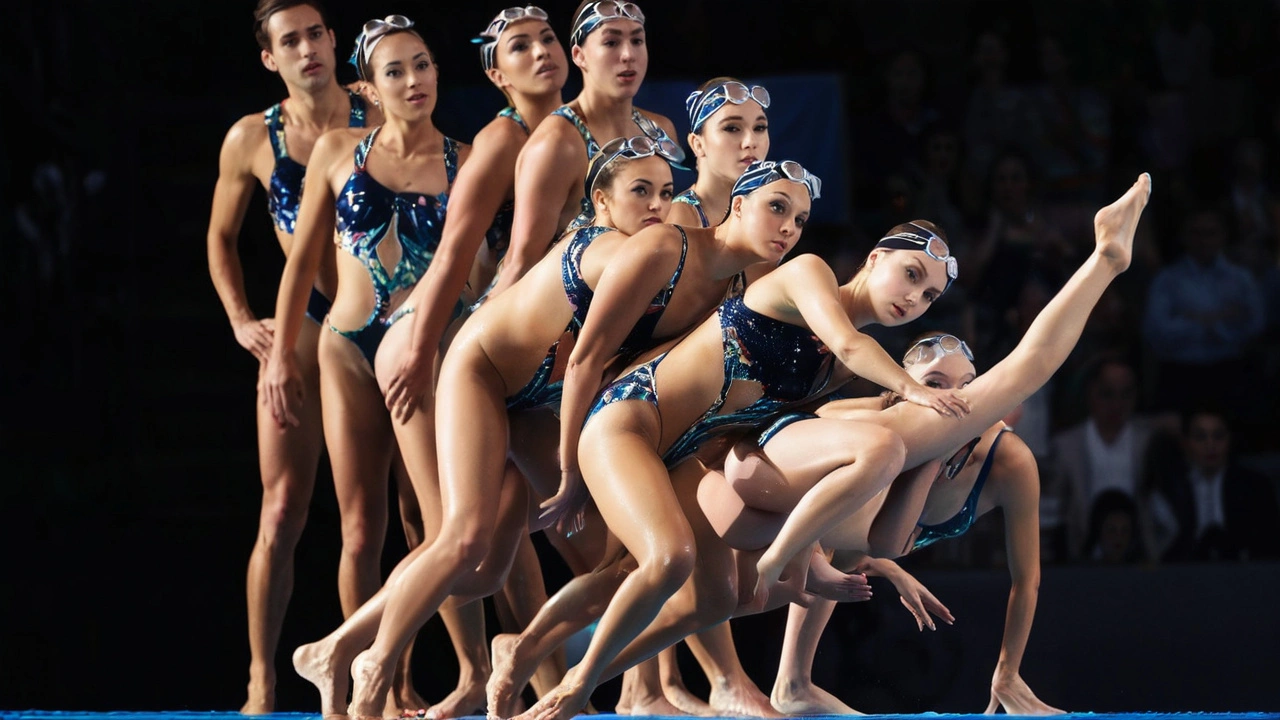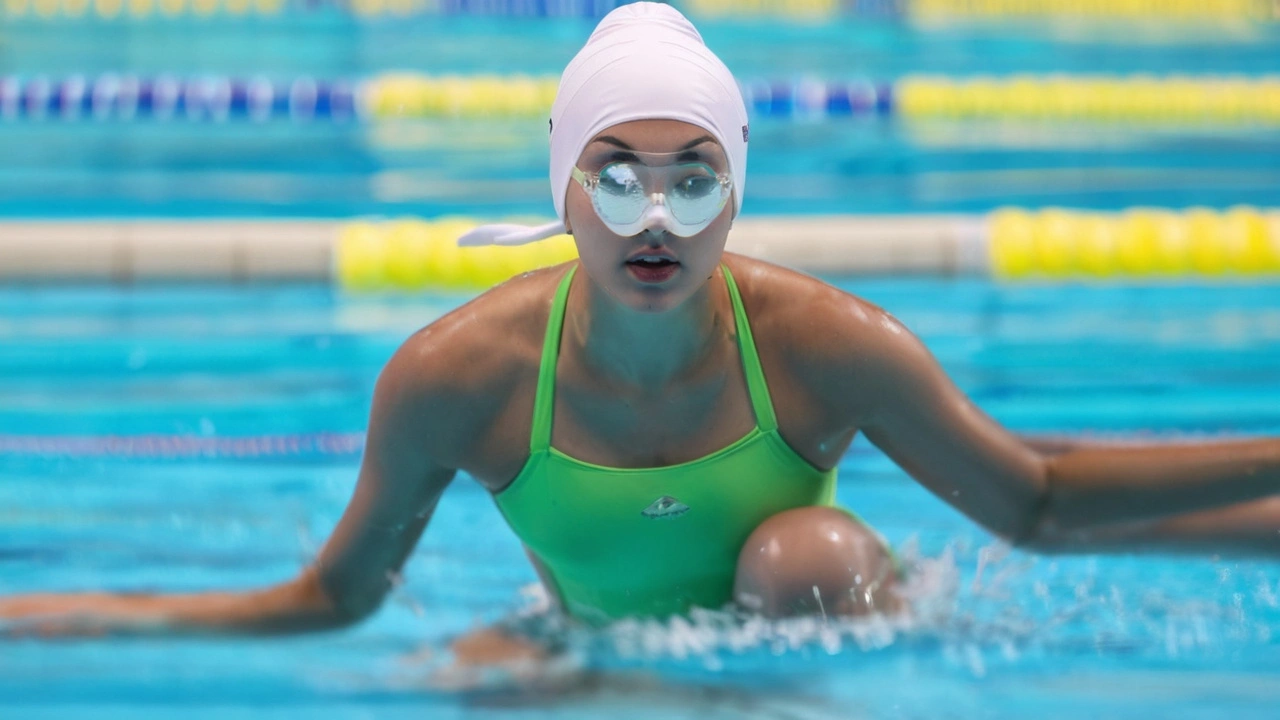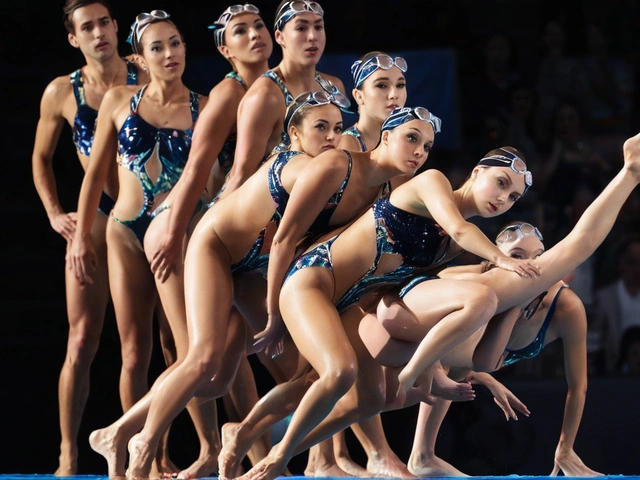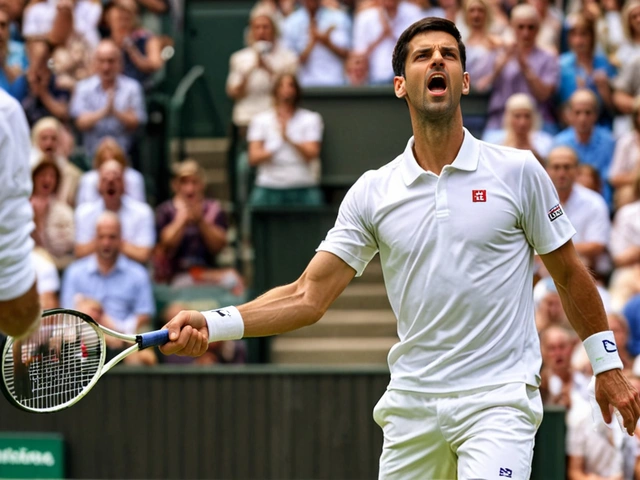
Bill May's Journey: From Aspiration to Disappointment
Bill May's story is a poignant reminder of the struggles many athletes face in the quest to achieve their Olympic dreams. Born and raised in New York, May's love for artistic swimming, then known as synchronized swimming, started when he was just ten years old. This passion grew steadily over the years, leading him to dedicate countless hours to training and perfecting his craft. His commitment paid off when he became a distinguished figure in the sport, earning accolades such as five world championship medals. Despite these accomplishments, May was left heartbroken upon learning that he would not be competing at the 2024 Paris Olympics.
May's journey has been marked by both triumph and adversity. When he began his training, artistic swimming was largely viewed as a female-dominated sport, which presented additional challenges. However, May's skill and determination began to change perceptions. His efforts provided inspiration not only to young male swimmers but also to advocates of gender inclusivity in sports.

Breaking Barriers in Artistic Swimming
Bill May has undeniably been a trailblazer in promoting inclusivity within artistic swimming. Historically, the sport faced significant gender barriers, with male participation being minimal at best. However, breakthroughs began to emerge, leading to a notable decision by World Aquatics in December 2022 to allow men to compete in artistic swimming at the Olympic Games. This rule change was seen as a monumental step towards inclusivity, offering new opportunities for male athletes.
Despite this progress, the journey to full acceptance and representation remains ongoing. May’s exclusion from the U.S. team highlights the complexities of balancing talent, team needs, and inclusive practices. The decision was reportedly based on the necessity to send the






I appreciate how Bill May’s story highlights the systemic barriers in artistic swimming. His perseverance despite limited support is commendable. It’s a reminder that talent alone isn’t always enough to secure an Olympic spot.
The entire discourse surrounding May’s exclusion is emblematic of a pervasive institutional inertia that masquerades as meritocracy. By invoking the language of "team cohesion" and "strategic allocation of resources," governing bodies subtly perpetuate gendered hierarchies under the veneer of performance optimization. In practice, this translates to a de facto quota system that disfavors male participants despite overt policy revisions. Moreover, the rhetoric of "artistic integrity" is wielded as a dogmatic shield against legitimate challenges to entrenched norms, thereby marginalizing athletes who deviate from the archetypal feminine paradigm. It is incumbent upon stakeholders to scrutinize the epistemological foundations of such justifications, which often lack empirical substantiation. The data demonstrates that male swimmers contribute comparable technical scores, yet are systematically sidelined. Consequently, the purported inclusivity heralded in 2022 remains superficial, serving more as a PR maneuver than a substantive overhaul. One must also consider the broader sociocultural ramifications, as the exclusion reinforces stereotypical constructs that dictate who may occupy aquatic spaces. Institutional complacency, therefore, becomes a self-perpetuating cycle that stifles progressive transformation. While the narrative continues to celebrate diversity, the operational mechanisms betray a reluctance to dismantle entrenched power structures. In sum, Bill May’s narrative is not merely a personal tragedy; it is a microcosm of systemic resistance to genuine gender parity within the sport.
May’s tale is a splash of raw truth in a pool of bureaucracy.
The emotional weight of watching a pioneer be sidelined is palpable. It feels like a curtain falling on a stage just as the spotlight hits. Yet the audience remains, yearning for the encore that never comes. This discord between policy and practice fuels a quiet desperation among aspiring male swimmers. We must keep the conversation alive, lest the silence become the new norm.
Indeed, the formal structures often overlook nuanced talent. A measured approach could bridge the gap while preserving team harmony.
One cannot help but notice the linguistic precision required in adjudicating artistic merit. It is, however, equally vital to recognize the sociocultural bias embedded within the scoring rubric. When we elevate language above lived experience, we risk constructing an ivory tower of elitism. Nonetheless, the discourse must remain constructive and inclusive.
Ah, the grand theatre of “inclusion”-so elegantly staged, yet perpetually missing its leading men. One might argue that the policy is a mere façade, an ornamental flourish designed to placate vocal critics while preserving the status quo. In any case, let us be candid: without substantive change, such proclamations are little more than bureaucratic theater.
They say the elites control the narrative, but have you ever wondered who's really pulling the strings? Somewhere deep in the shadows, secret committees decide who swims and who doesn't…
Let’s keep the focus on the athletes’ hard work rather than conspiracies. Every swimmer deserves a fair chance.
Existence is a ripple in the water, and May’s missed wave is a reminder of unseen currents. We can’t ignore the depth beneath the surface.
💖 What a heartbreaking story! 🌊 It really shows how important it is to push for true equity in sports. 🙌 Let’s keep cheering for change! 🌟
Ah, the irony of championing “inclusivity” while still drafting the rulebook in a language only the privileged understand. It’s as if they’re hosting a banquet but serving food on invisible plates. One could argue that the satire is unintentional, yet the outcome is unmistakably comical. Still, perhaps the next chapter will finally let the omitted voices speak.
The hypocrisy is glaring and unacceptable. If the governing bodies truly wanted meritocracy, they would stop hiding behind jargon. This must stop now.